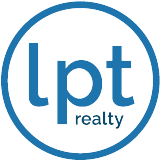

Is Buying a Home Still a Smart Plan
With the burst of the housing bubble, credit crisis, and millions of foreclosures across the country, you may wonder if buying a home is such a good idea after all. However, it’s important to consider all of the facts. The important message to take away from these events is not that buying a home
Read More

Unlocking Solar Potential: A Guide to Remote Quotes for Home Installation
Embarking on a solar journey for your home involves careful consideration and research. Discovering the right solar solution becomes more accessible when you opt for remote quotes, allowing you to explore various options without the presence of a salesperson in your home. Here are nine compelling r
Read More

Hot, Normal, and Cold Markets
Hot Market This is an extremely competitive market and is advantageous to the seller. Sometimes, homes will sell as soon as they are listed or even before homes are listed. Typically, during a hot market, multiple offers will be made on each home and more often than not, homes will sell for more th
Read More

Avoiding Financial Stress
By asking the right questions, and knowing exactly what your needs are, you can find the right loan for you. There are certain approaches that you can take while mortgage shopping that can cost or save you money. It is still true that the better qualifications you have, the lower your interest rate
Read More
Categories
Recent Posts









